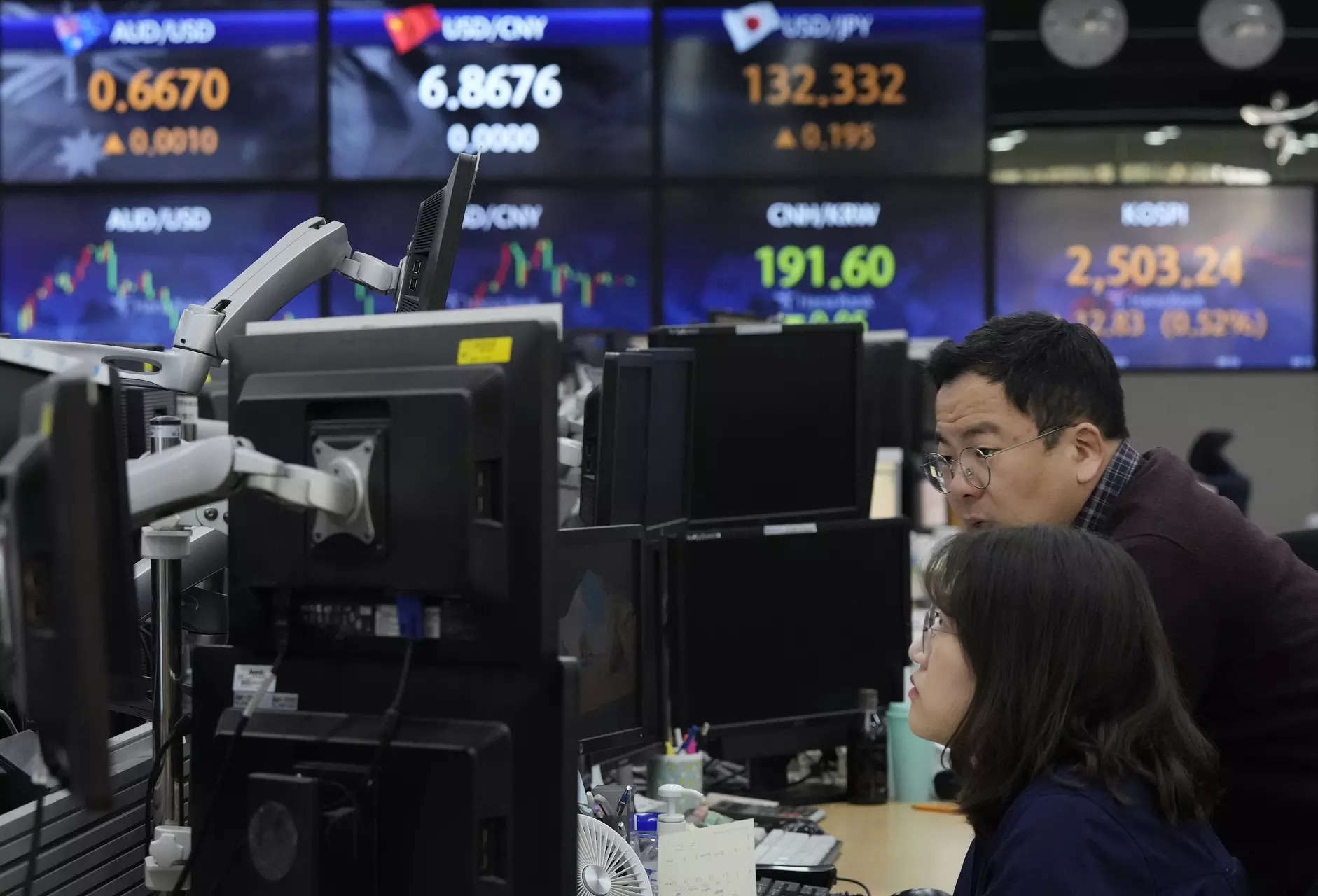Asian Stocks: Chinese Stocks Rebound Loses Energy. Focus turns to ECB

The dollar rebounded from lows in January after a survey showed U.S. business activity was recovering. The Canadian dollar fell after the Bank of Canada left interest rates unchanged but backed off its statement that it was preparing to raise them further.
MSCI’s Asia-Pacific index excluding Japan rose 0.5% in early trading, the Hang Seng index rose 0.6% and the mainland index remained stable.
Japan’s Nikkei index fell 0.3%.
Strong data from the U.S., a reserve requirement cut by Chinese banks and provision of about 1 trillion yuan ($140 billion) in loans pleased investors, pushing the S&P 500 index to a record high and global stocks hitting their highest in two years. I did.
China’s decline comes after a Chinese stock market crash on Monday that sent the Shanghai Composite Index to a four-year low and hit the Hang Seng Index. The situation appears to have stabilized for now, with Bloomberg reporting that China is considering a large bailout fund for its stock market, but the outlook does not yet inspire much confidence.
“This is not a panacea that changes the story too much,” said Tim Graf, head of macro strategy for Europe, Middle East and Africa at State Street in London. “A more targeted stimulus would be a more powerful lever to push forward, but they seem reluctant to do that.”
The Hang Seng index is trading 8% above its 15-month low on Monday, but remains down more than 6% so far this year and is almost 20% below where it started 2023. Since then, global stocks are up 21%.
S&P 500 futures fell 0.1% in Asia, as did Nasdaq 100 futures, as Tesla shares fell 6% after the bell following weaker-than-expected performance and warnings of a slowdown in future sales.
South Korea beat expectations for growth in the fourth quarter of 2023 despite a decline in the KOSPI and a stable won.
Rising yields
In currency markets, optimism that China would introduce stimulus measures boosted the Australian dollar, but this proved short-lived. The Australian rose overnight and was down 0.1% at $0.6569 in the Asian morning.
The euro was steady at $1.0875 and the yen remained strong at 148 per dollar after hints of a rate hike in Japan triggered sharp selling in the Japanese government bond market.
The Bank of Japan kept interest rates on hold this week, but Governor Kazuo Ueda said it looked more likely that inflation would continue to reach the bank’s 2% target. Japan’s 10-year government bond yield rose 2.5 basis points to 0.73%.
Global bond markets are also under pressure as traders lower their expectations of interest rate cuts.
Strong activity data on Wednesday pushed the two-year U.S. Treasury yield off an overnight low and held steady at 4.37% in Asia. The European Central Bank (ECB) is likely to backtrack on investor expectations of aggressive policy easing this spring at its policy meeting on Thursday afternoon.
Interest rate futures prices suggest that the probability of a U.S. interest rate cut in March is about 40%, down from 75% early last week.
“If we want to cut rates in March, we need to see bad data next month,” Remi Olu-Pitan, head of multi-asset growth and income at Schroders, told an outlook briefing in Singapore.
“If that comes to fruition, there will be problems for stocks,” she said. Because stocks aren’t priced for weakness.
She said the apparent contradictions would likely be “normalized through rising bond yields.”
In commodities markets, Brent futures rose 0.2% to $80.22 per barrel. Singapore iron ore held steady at $135 a tonne, while London copper hit a three-week high on expectations of further stimulus from China. ($1 = 7.1515 Chinese Yuan Renminbi)
Download the Economic Times news app to get daily market updates and real-time business news.
Subscribe to The Economic Times Prime and read Economic Times ePaper Online and Sensex Today.
Top trending stocks: SBI stock price, Axis Bank stock price, HDFC Bank stock price, Infosys stock price, Wipro stock price, NTPC stock price.




